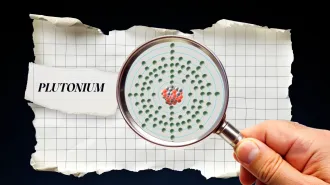You’re only as old as you perceive yourself to be
By Nancy Shute
- More than 2 years ago
 Aging is inevitable, but the health declines that appear to be part of the package may not be, according to provocative research about how our attitudes about aging influence our physical health.
Aging is inevitable, but the health declines that appear to be part of the package may not be, according to provocative research about how our attitudes about aging influence our physical health.
It’s no surprise that the negative stereotypes about growing older that are pervasive in many societies could make people feel worse about themselves; the pioneering gerontologist Robert N. Butler coined the term “ageism” way back in the 1960s. And we know that being called a decrepit geezer can’t be good for anybody’s sense of self. Surely I’m not the only person who cringes when I see the word “elderly” applied to people in their 60s. A little Googling reveals that Oprah Winfrey is 65, Richard Gere turns 70 this month and Helen Mirren is 74. If this is what elderly looks like, it’s time to rewrite the definition.
A growing body of research suggests that a psychological technique called subliminal priming might actually improve the physical health and mental performance of older people, perhaps by overriding negative perceptions of aging. Those are the kind of findings that make us congenital skeptics here at Science News think, hmm, interesting if true. Fortunately, we knew just the science journalist to tell us what’s going on here: Robin Marantz Henig, an award-winning science writer and contributing writer for the New York Times Magazine. She’s been fascinated by aging and social attitudes since she was young; her first book, written when she was 27, is titled The Myth of Senility.
Henig now has two young granddaughters, which has her thinking about how older women are perceived from a different perspective. “Inside we’re the same as we always were,” she told me. But on the outside, “you become the character that you’ve resisted for such a long time … this terrible negative image.”
If you met Henig, I think you’d agree with me that she’s about as hip and youthful as a grandmother can be. So it’s surprising to hear that she struggles against those stereotypes, too. She does think that ageism isn’t quite as bad as it was in past generations, partly the result of baby boomers’ insistence on redefining whatever stage they’re in. “But I don’t want to be too glib about it; it’s complicated,” she says. And the impact goes far beyond self-perception. ProPublica and the Urban Institute reported late last year that more than half of workers over 50 are pushed out of jobs before they would have chosen to retire. The financial consequences can be devastating, but it happens, more than 50 years after age-related job discrimination was made illegal in the United States.
The subliminal technique that the researchers used to change people’s perception of aging remains controversial (SN: 5/19/12, p. 26), and the benefits the studies found are modest. But Henig says that knowing that it may be possible to counter what often feels inevitable helps motivate her to better manage her own aging. She’s now following the lead of Lauren Carstensen at the Stanford Center for Longevity: “When my knees ache,” Henig says, “I’m trying really hard to focus on fixing it rather than just living with it.”







